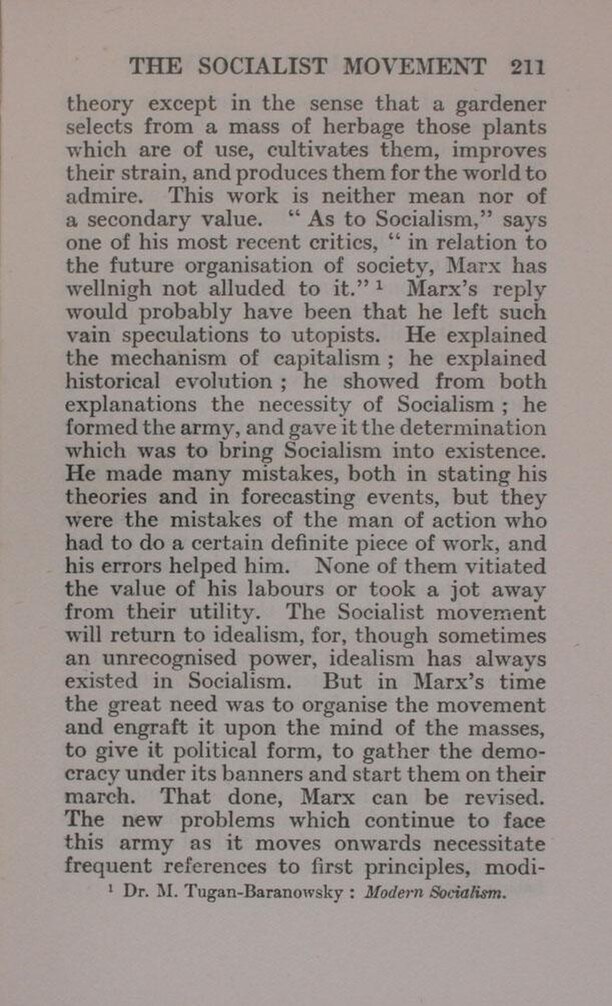theory except in the sense that a gardener selects from a mass of herbage those plants which are of use, cultivates them, improves their strain, and produces them for the world to admire. This work is neither mean nor of a secondary value. "As to Socialism," says one of his most recent critics, "in relation to the future organisation of society, Marx has wellnigh not alluded to it."[1] Marx's reply would probably have been that he left such vain speculations to utopists. He explained the mechanism of capitalism; he explained historical evolution; he showed from both explanations the necessity of Socialism; he formed the army, and gave it the determination which was to bring Socialism into existence. He made many mistakes, both in stating his theories and in forecasting events, but they were the mistakes of the man of action who had to do a certain definite piece of work, and his errors helped him. None of them vitiated the value of his labours or took a jot away from their utility. The Socialist movement will return to idealism, for, though sometimes an unrecognised power, idealism has always existed in Socialism. But in Marx's time the great need was to organise the movement and engraft it upon the mind of the masses, to give it political form, to gather the democracy under its banners and start them on their march. That done, Marx can be revised. The new problems which continue to face this army as it moves onwards necessitate frequent references to first principles, modi-
- ↑ Dr. M. Tugan-Baranowsky: Modern Socialism.
